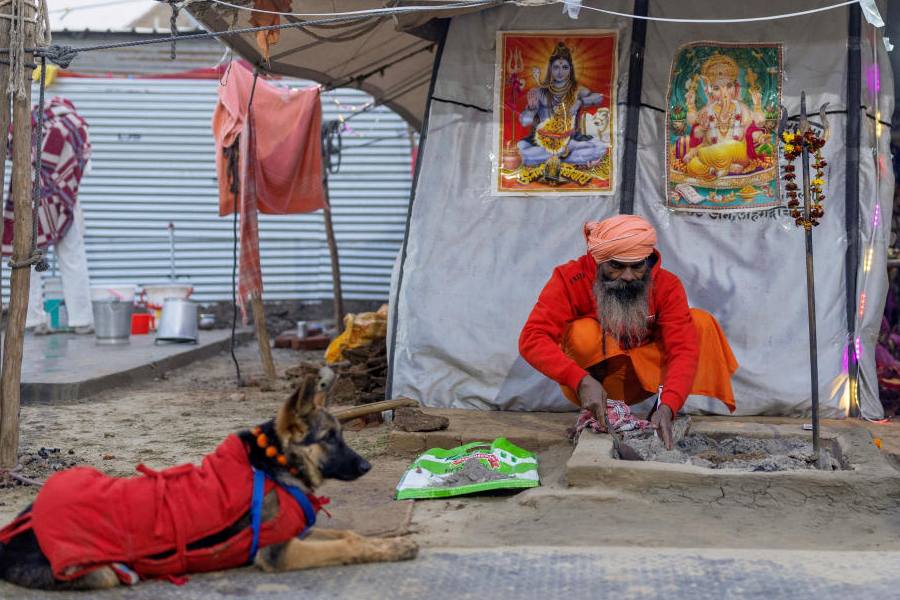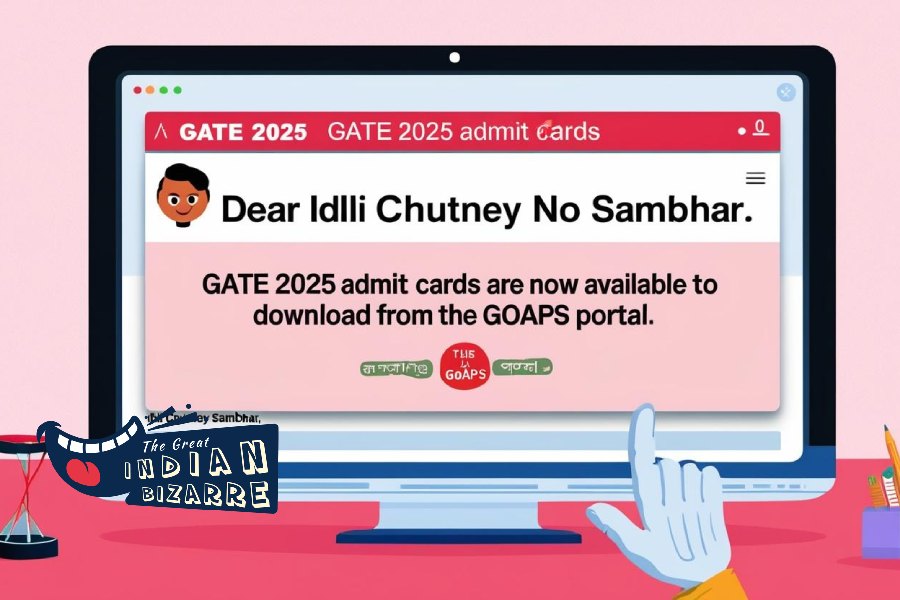 Sunday, 12 January 2025
Sunday, 12 January 2025
 Sunday, 12 January 2025
Sunday, 12 January 2025
Modi 2.0: The movie. The director of this 2.06-hour-long production is Nikhil Kamath, a billionaire by day who founded Zerodha, the enormously successful zero-fee stock trading site. For one day a month, Kamath leaves behind the high-pressure world of stock trading to do his podcast WTF, which focuses mainly on entrepreneurship.
Earlier interviewees include industrialist Kumar Birla and movie star Ranbir Kapoor. WTF comes in sixth on the Spotify charts, giving it a wide reach, especially among a young audience.
Kamath’s questions to Modi are admittedly all softball. But he manages to extract some candid answers from the famously reticent prime minister who was doing his first-ever podcast. In a roundabout way, Modi admits he leads a lonely life.
“Now, there is no one left in my life who addresses me as ‘tu’. They treat me with a lot of respect.” Only one elderly teacher took that liberty, but even that was a long time ago. Says Modi: “I had a teacher, Rabirbhai, who was 93 or 94 years old. He used to write letters to me, addressing me as ‘tu,’ even after I became CM.”
Modi says he left his family and his village at a very young age – he doesn’t say when exactly – and it’s clear he was always a loner without a gang of friends. “I left home at a very early age. I left everything behind. I had no contact with anyone and wasn’t in touch with anyone. I was lost in life, wandering. There was no one left to care,” he says.
He tried to put this right soon after he became the Gujarat chief minister and invited about 35 people he had been to school with to his house in Ahmedabad. “After I became chief minister, some desires arose in my mind. One of them was to invite my former classmates to the CM house.”
But it was an unsuccessful effort to reconnect. “My idea was to remind everyone that I had not changed: that I was the same person who left the village. However, even I couldn’t recognise them because everyone had changed. Their hair had turned grey. There were 35 people, and we all chatted.”
He admits that getting in touch with his old schoolmates didn’t really work. “I didn’t enjoy it because I was looking for friends, while they saw me as the CM. I couldn’t bridge that gap.”
Modi also brought his old teachers together and that worked out better. “After I became CM, I also had another wish: I wanted to publicly honour all my teachers. So, I searched for all my schoolteachers and organised a big event to honour them after becoming CM. Our governor also attended, along with all the reputed persons of the area. I invited around 30-32 teachers and honored each one publicly. It was a beautiful moment in my life that touched me deeply.”
He had lost touch even with his own family and had to put effort into rebuilding relations with them “Later, I dedicated my life to my entire family — my brothers, their children, my sisters, and their children. I wouldn’t have been able to recognise them as I had left home so early. I invited all of them and was introduced to the family.”
On a slightly contradictory note, he appears to have made many friends during his wandering years in the wilderness. “When you went to Bangalore, it was often said about me that if you went to find Narendra Bhai, he would be standing around guffawing with a bunch of young people. Even today, regardless of the field or age group, I don’t feel a disconnect. I may not have a perfect answer about the world, but I blend well with everyone,” he says. Later, he adds, “I get along with everyone.”
Kamath’s questions that Modi fields with ease are presumably designed to reveal more about the inner thoughts of the prime minister, and they range far and wide – sometimes amazingly so. Asks Kamath: “A lot of children nowadays suffer from anxiety. Even I suffer from it sometimes. I am sitting and talking to you. I feel nervous. I feel I don’t know what I will say. How would you feel?” Modi’s answer to the somewhat roundabout question: ‘I hold such a position that I have to control my emotions. The natural tendency that human beings have, I must stay detached from that.”
Later, Kamath asks, “What did you learn from failures? and “Have these setbacks played a role in fixing your personality?” “I have faced many setbacks,” replies Modi, somewhat unusually recounting a story about when he had first learnt to drive. “When I was working with the RSS, they took an old Jeep. I had just learnt driving. We were returning from Ukai Dam. So I put off the engine to save petrol. I didn’t know the problem I was getting into. The vehicle became uncontrollable. I couldn’t apply the brakes.” There’s a tame ending to this story because they got to the bottom safely without any mishaps.
The fact is that most of the questions are sitters that can be answered without the slightest difficulty. For example, Kamath asks: “India Stack we are direct beneficiaries Of UPI, KyC, Aadhaar. When these were conceived, did you think these would play out in the manner that they have?” Modi seizes the opportunity and replies: “Today, in 30 seconds I can directly transfer money into the accounts of 100 million farmers. I can send the subsidy to 130 million cylinder customers in just one click in 30 seconds.” He adds: “UPI is a marvel for the whole world.”
Certainly, the interview gives Modi the perfect opportunity to expand on his successes and his ways of working. He says that when he first came to Delhi, he told senior secretaries to reconnect with their roots and visit the villages where they started their career and reflect on the changes – or lack of change – that had taken place over the years. “I have always believed in motivating others through action, not criticism. Leadership for me is about inspiring people to see the bigger picture and work towards it with dedication and honesty.”
Modi got a chance to rebut what the opposition called his “God complex” during the election campaign when he said in a TV interview that he “used to believe I was born biologically” when his mother was alive but after she died – “reflecting on my experience, I was convinced God had sent me.” Modi told Kamath humbly that, “Mistakes happen, and I too can make some. I am also a human, not a god.” But he said none of his actions have a “wrong intention.”
Modi also talks about favourite subjects like when he was refused a visa to the US. “I believed there would be a time when the world would stand in line for a visa for India. Today, I see that vision coming true.” Kamath makes no attempt to question this assertion.
On Russia-Ukraine and Palestine-Israel too, Modi insists. “I believe in peace and I am committed to it. India’s credibility on the global stage is strong because of our consistent and principled approach.”
Interestingly, Modi admits that he took time to understand how Delhi and the central government worked. “In my first term in office, I tried to understand Delhi, and in the second term, I reflected on my experiences. Now, in my third term, I feel stronger and more confident. My dreams have expanded, and my vision for the future is clearer. By 2047, I want to see a developed India – not just through speeches, but through action.”
His vision is for, “100 per cent toilets, 100 per cent electricity, 100 per cent tap water, and 100 per cent government accountability.” How close are we to getting there? That’s a question that isn’t asked.







